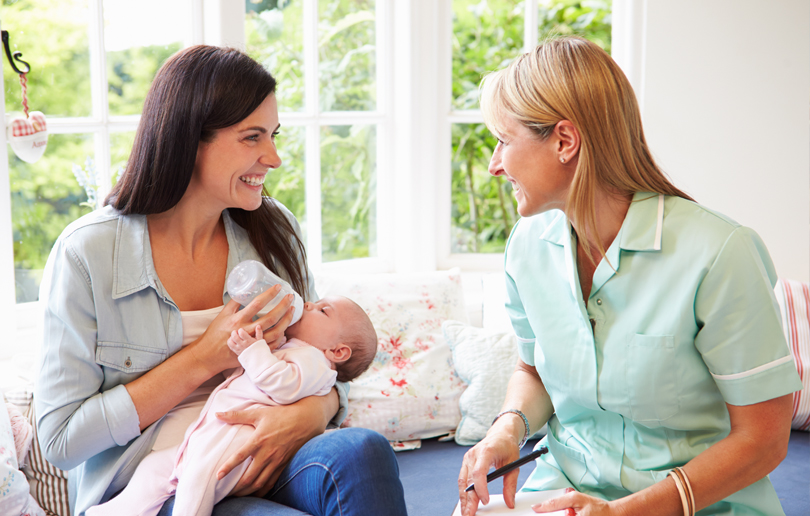
Baby Care at Home: A Comprehensive Guide for New Parents
Welcoming a newborn into your home is an incredibly joyous and transformative experience. However, it also comes with a myriad of responsibilities and challenges, especially when it comes to caring for your little one. To ensure your baby’s well-being and optimal development, it’s crucial to establish a comprehensive care routine at home. This article will provide you with an in-depth guide to all aspects of baby care, empowering you to confidently navigate this new chapter in your life.
Feeding
Breastfeeding:
- Breast milk is the ideal nutrition for newborns, providing them with all the essential nutrients they need.
- If you choose to breastfeed, it’s important to establish a regular feeding schedule and ensure proper latch-on to prevent nipple pain.
- Seek support from a lactation consultant if you encounter any difficulties or have questions.
Formula Feeding:
- If breastfeeding is not an option, formula can provide adequate nutrition for your baby.
- Choose a formula that is appropriate for your baby’s age and any specific dietary needs.
- Follow the instructions on the formula container carefully and maintain proper hygiene when preparing and storing formula.
Burping and Spit-Up:
- Burping your baby after each feeding helps release trapped air and prevent gas and discomfort.
- Hold your baby upright against your shoulder and gently pat or rub their back until they burp.
- Spit-up is common in babies and is usually not a cause for concern. However, if your baby spits up frequently or excessively, consult with your pediatrician.
Diapering
- Change your baby’s diaper frequently, especially after feedings and bowel movements.
- Use gentle wipes and warm water to clean your baby’s diaper area.
- Apply a diaper cream to prevent diaper rash.
- Dispose of dirty diapers promptly and hygienically.
Bathing
- Newborns do not require frequent baths. Sponge baths are sufficient until the umbilical cord falls off.
- Use lukewarm water and gentle baby soap.
- Support your baby’s head and neck while bathing.
- Pat your baby dry with a soft towel and apply baby lotion to keep their skin moisturized.
Sleep
- Newborns sleep a lot, up to 16-18 hours per day.
- Establish a regular sleep-wake cycle as soon as possible.
- Create a calming bedtime routine that includes a warm bath, massage, and lullabies.
- Ensure your baby’s sleep environment is safe, dark, and quiet.
Crying
- Crying is a baby’s primary way of communicating.
- Try to identify the reason for your baby’s crying by checking for hunger, wet diapers, discomfort, or overstimulation.
- Respond to your baby’s cries promptly and comfort them with cuddles, rocking, or a pacifier.
- If your baby’s crying is persistent or inconsolable, consult with your pediatrician.
Health and Safety
Immunizations:
- Immunizations are essential for protecting your baby from serious diseases.
- Follow the recommended immunization schedule provided by your pediatrician.
Cord Care:
- The umbilical cord will typically fall off within 1-2 weeks after birth.
- Keep the cord clean and dry.
- If the cord becomes red, swollen, or foul-smelling, contact your pediatrician immediately.
Temperature Monitoring:
- Monitor your baby’s temperature regularly, especially if they have a fever.
- Use a digital thermometer and take your baby’s temperature rectally.
- A fever is defined as a temperature of 100.4 degrees Fahrenheit or higher. If your baby has a fever, contact your pediatrician.
Safety:
- Never leave your baby unattended.
- Use a car seat whenever traveling with your baby.
- Keep your home free of hazards such as sharp objects, electrical cords, and small toys.
Emotional Development
Bonding:
- Bonding with your baby is crucial for their emotional well-being.
- Spend plenty of time cuddling, talking, and playing with your baby.
- Respond to your baby’s cues and show them affection.
Sensory Stimulation:
- Provide your baby with a variety of sensory experiences to stimulate their development.
- Use toys with different textures, colors, and sounds.
- Talk to your baby, sing songs, and read books.
Cognitive Development:
- Encourage your baby’s cognitive development through play and interaction.
- Talk to your baby about their surroundings and describe objects and events.
- Play peek-a-boo and other interactive games.
Additional Tips
- Seek support: Don’t hesitate to ask for help from family, friends, or a postpartum doula.
- Trust your instincts: You know your baby best. If something doesn’t feel right, don’t ignore it.
- Don’t compare your baby to others: Every baby develops at their own pace.
- Enjoy the journey: Babyhood is a fleeting time. Cherish every moment and don’t stress over the small stuff.
Conclusion
Caring for a newborn at home can be a daunting task, but with proper knowledge and preparation, you can confidently provide your little one with the love, care, and support they need to thrive. Remember, every baby is unique, and there is no one-size-fits-all approach to baby care. By following these guidelines and adapting them to your baby’s individual needs, you can create a nurturing and loving environment that will foster your baby’s physical, emotional, and cognitive development.
